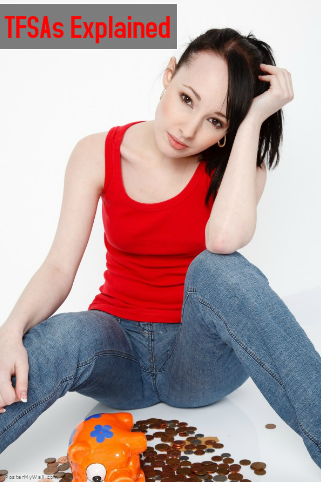TFSAs for beginners – Exchange traded funds
Related Articles
By Nonhlanhla Kunene
Tax-free savings accounts explained
The new kid on the personal finance block, tax-free savings accounts (TFSAs), is attracting a considerable number of novice investors – who can quickly become confused by the jargon thrown around by industry experts and service providers trying to convince consumers to go with  their product.
their product.
Savetaxfree.co.za’s recent survey found that nearly a third of the 35 384 TFSAs opened between 1 March and 30 June are believed to be first-time savers. Do some research on what TFSAs are about and you can be quickly flooded with information, ranging from the different types of investments to terms such as asset classes, ETFs, risk exposure, annual fees, broker fees, diversifying … and the list goes on. With so much information overload, it’s quite easy to feel overwhelmed and put investing off for yet another day.
So what does it all mean in laypersons terms? What exactly does it mean when a financial expert tells you to opt for ETFs over cash as a long-term investment, or to opt for low–risk investments as you near retirement?
Here it is: TFSAs for beginners, lesson #1.
Let’s start with asset classes, which come up a lot during discussions on tax-free savings. What are they and how do they feature in discussions on tax-free investments? Simply put, an asset class is a group of tradable financial instruments with similar characteristics. These instruments fall into four main categories:
- Equities, which are companies traded on the Johannesburg Stock Exchange
- Bonds, which can generate monthly income
- Cash, which can be invested in money markets
- Property, which includes property companies listed on the JSE
A working knowledge of asset classes is useful for making informed decisions about the best investment strategy for each individual, based on his/her needs.
For those whose goal is to invest over a longer period to yield maximum returns, equities are generally regarded as the best investment vehicle. For tax-free investments, equities are accessible through exchange traded funds (ETFs). And what exactly are ETFs?
ETFs are liquid securities (easily changed to cash). They are essentially collective investment schemes similar to unit trusts, but are traded on the JSE like any other company. Each ETF tracks a particular category of investments. A common one is a top 40 ETF that invests in the 40 biggest companies on the JSE. Other examples include ETFS that invest in gold or financial and industrial companies.
Because the underlying investments of ETFs are listed companies, they are considered to be high risk investments due to stock market volatility. They are considered ideal for the longer term because historically over time, returns from equities have always outperformed the other asset classes.
ETFs can be accessed through a stockbroker, which would mean that your TFSA may be subject to brokerage and other fees, though most stockbrokers have cut TFSA costs to a minimum.
- The next TFSAs for beginners will focus on unit trusts.



